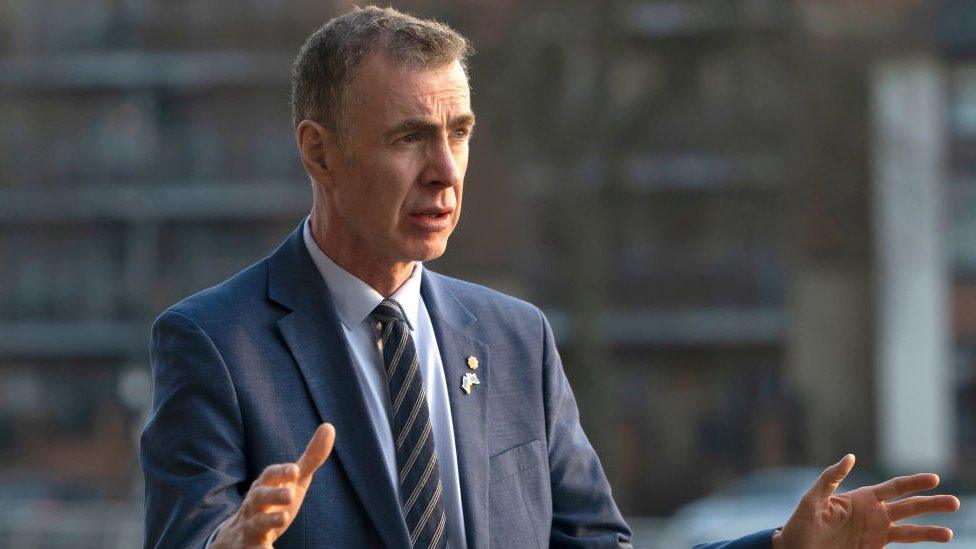'Inappropriate touching MS should face by-election threat' - Plaid MP
- Published
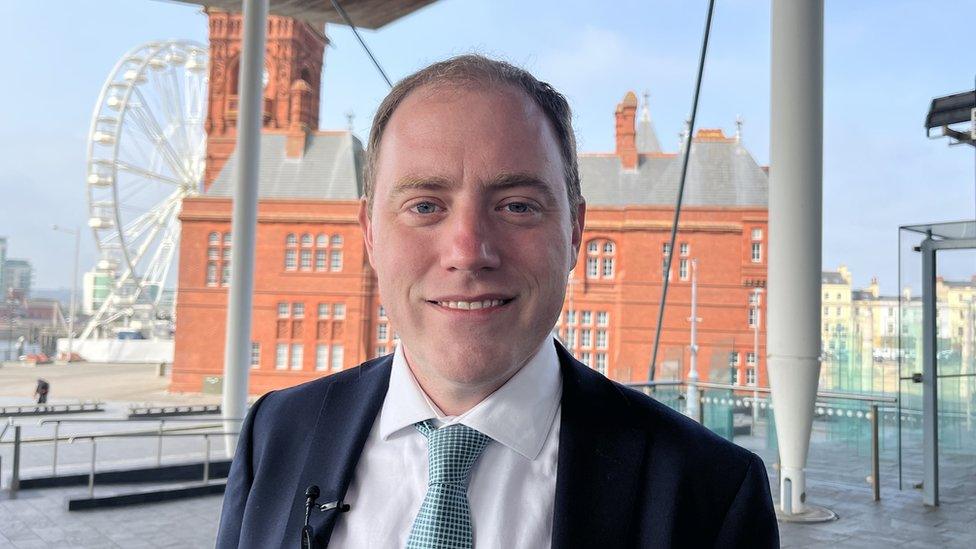
Rhys ab Owen faces a 42-day Senedd ban
A Plaid Cymru MP says an ex party member should have faced losing his seat for inappropriate behaviour towards women.
Rhys ab Owen, a South Wales Central MS in the Senedd, is facing a 42-day ban over his behaviour on a night out.
Ben Lake said it was not right the sanction does not trigger a recall petition - which if passed leads to a by-election - like in Westminster.
Mr ab Owen has apologised "to those who were affected by my behaviour".
But a report from the standards committee of the Senedd says he denies inappropriate touching of the women concerned,
Mr Lake, who represents Ceredigion in the UK Parliament, said it was clear the behaviour was "unacceptable".
The standards commissioner Douglas Bain found that Mr ab Owen, who was drunk in Cardiff Bay with Members of the Senedd and Plaid staff, inappropriately touched two women and swore at them.
Speaking to BBC Wales Live, Mr Lake said that it was "not right female members of staff should be subjected to such inappropriate behaviour".
As well as detailing the alleged behaviour, the report also said the issue was raised within Plaid Cymru very soon after the incident.
It took place on the night of 30 June to 1 July 2021. The report says the matter was raised in the party on 1 July.
But Mr ab Owen was not suspended from his party's group until November 2022, after a complaint was made in writing to the commissioner in August of that year.
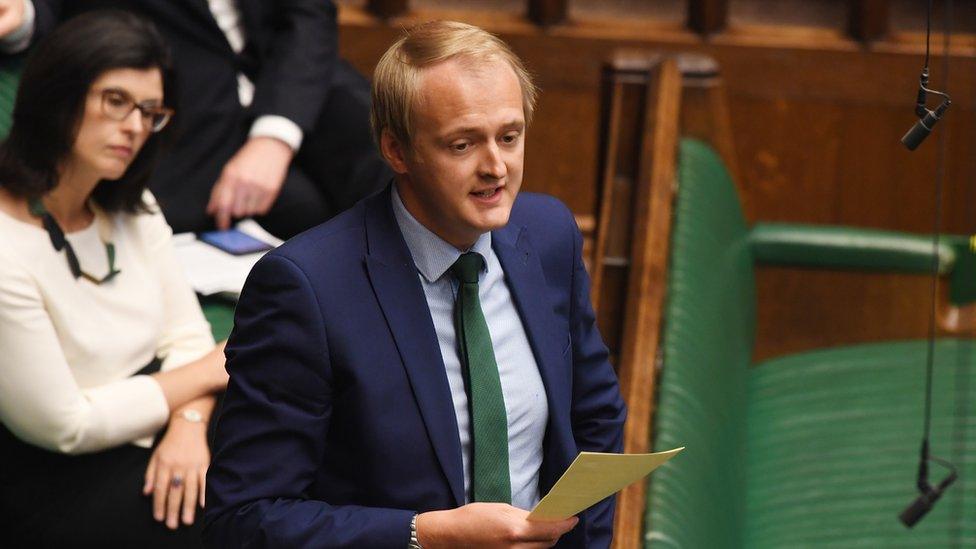
Ben Lake says the Senedd should have the same recall petition procedure as Westminster, where he represents Ceredigion
The standards committee's report on Mr Bain's investigation recommended a six-week long ban which will need to be approved by the Senedd next week.
Mr Lake said: ''It's clear that some unacceptable instances have happened and it's not right that female members of staff should be subjected to such inappropriate behaviour.''
He criticised the way which the Senedd dealt with members who were suspended.
''In Westminster such a ban or a sanction would trigger a recall petition and I think it is something that, if it is not possible at the moment in the Senedd, it's something we should be exploring.
"Because it can't be right that an elected member can act in such a way, to be found guilty of doing this and then to continue in that representative function.''
When asked if he would support a by-election he said: "Yes, if that's a way it could work.''
What is a recall petition?
In Westminster anyone who is suspended for 10 days that the Commons would be sitting is subject to a recall petition.
That means if 10% of the electorate sign, a by-election is triggered. The sitting MP may wish to defend their seat or step aside.
Although the Welsh Parliament can, on recommendation of the standards committee, ban politicians from the state and remove their salaries for set lengths of time, there is no provision for a petition.
Legislation that will increase the number of Senedd members, which is currently being examined by the Welsh Parliament, does not include a recall measure.
A Conservative attempt to add it to the bill was rejected on Tuesday, although the Senedd was told that the standard committee is going to look at the issue.
A complicating factor is the Senedd's electoral system. Currently there are no by-elections if a regional MS steps down, because they are elected from a party list.
Under the new system will have no by-elections at all, with all 96 MSs elected from party lists.
A Labour MP said the public should have a way to remove misbehaving Senedd members from office.
Pontypridd MP and shadow minister Alex Davies-Jones told BBC Wales it was not right "the public have no opportunity to hold him to account and have a choice as to whether they are still represented by him.".
"How do women or victims in the region feel about going to him now with some very serious case work. How would they feel," she asked.
"There must be a way of holding public figures and politicians to account for inappropriate behaviour or if they commit a crime."
Related topics
- Published6 March 2024
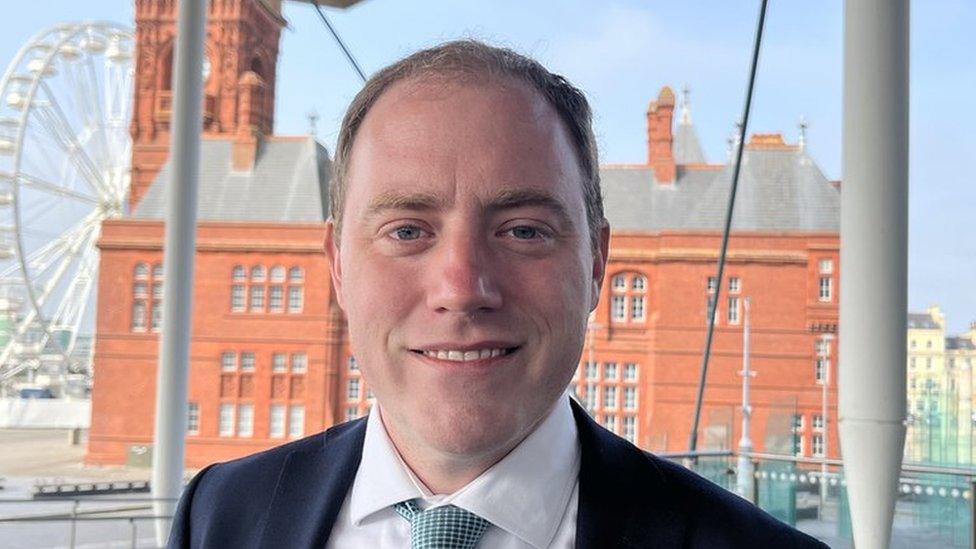
- Published8 November 2022
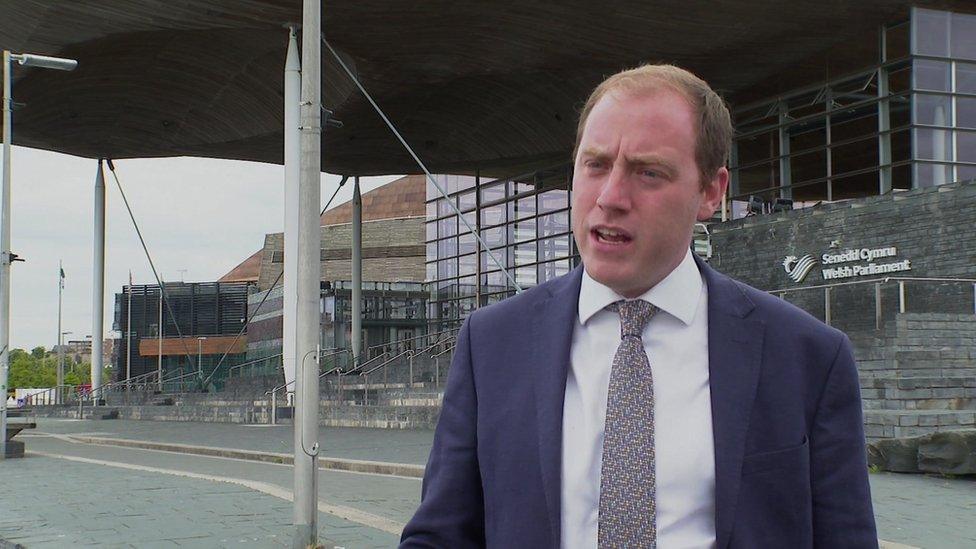
- Published3 May 2023
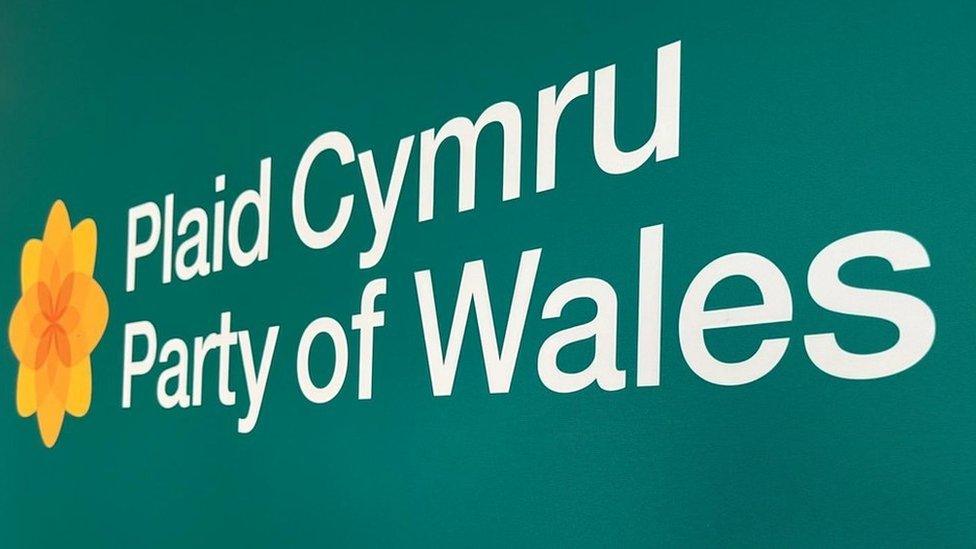
- Published11 May 2023
